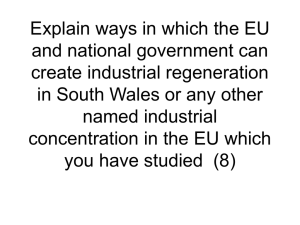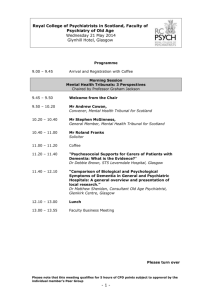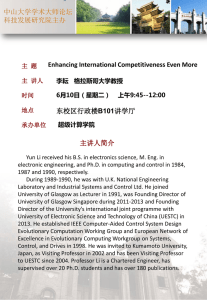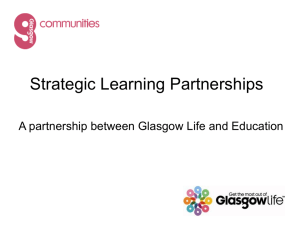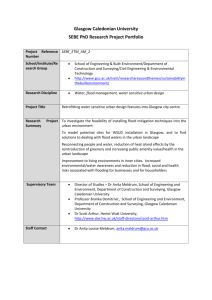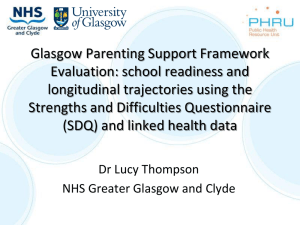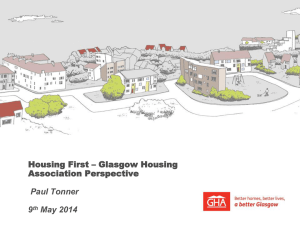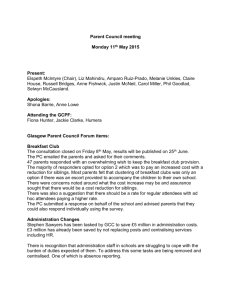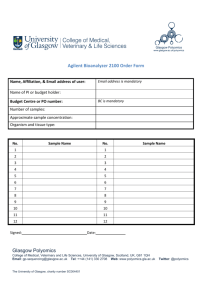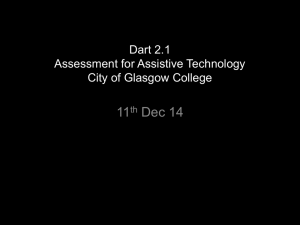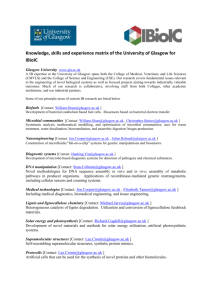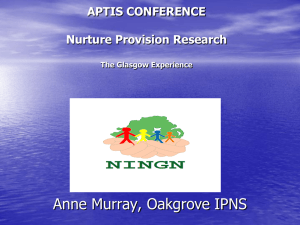Heather Douglas Slides
advertisement
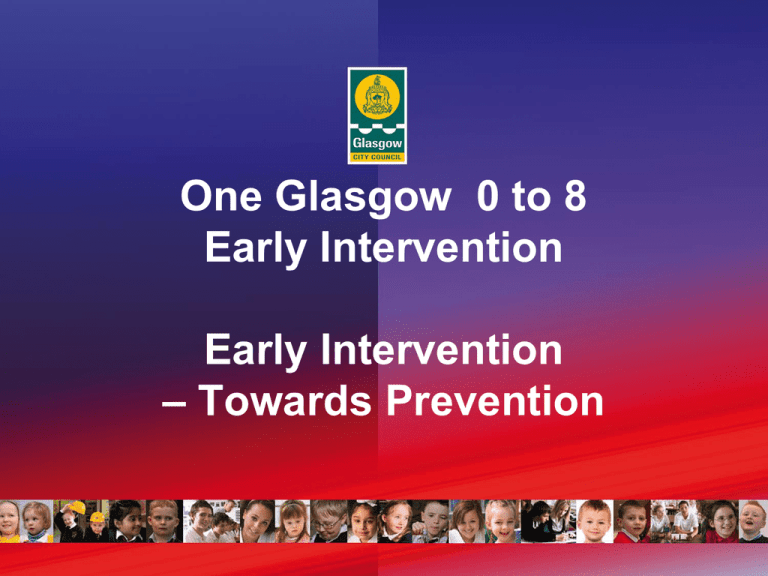
One Glasgow 0 to 8 Early Intervention Early Intervention – Towards Prevention One Glasgow 0-8/EYC • One Glasgow : a “Total Place” approach • National Early Years Collaborative – methodology ; stretch aims • Three workstreams adopted from EYC – Conception to age 1yr : led by NHS – 1yr to 30 months : led by NHS – 30 months to 8yrs : led by Education • Multi-agency groups established to oversee progress – reporting to Childrens Services Executive Group Multi agency response Targeting strategy Thriving Number in each category Coping Categories Just coping Chaotic Resources targeted to category Finance • Community Planning Partnership (£2 million) • • • • • Triple P Positive Parenting Programme Permanency planning Kinship Care Nurture Family support services • Each agency’s own core budget contribution • Third sector funding – Glasgow has been particularly successful Early Years in Glasgow • • • • • • • 112 local authority establishments plus 90+ partnerships Term-time and extended (50 weeks) 7000+ places 25% for 0 to 3 – proportionally much more than other authorities (1000 places for 2 to 3 years ; 450 places for under 2’s) Impact of pricing policy – occupancy gaps in areas of deprivation Most 3 and 4 year old children have always received 15 hours of free nursery education per week (570 hours annually) : extended to partner settings in Aug 2010. Universal. Children & Families Bill from August 2014 : further extension to 600 hours annually to include LAC / Kinship care 2 yr olds One Glasgow initial focus – children under 3 esp. 2-3 yr olds Progress • Workstream 1 : Conception to 1 yr • • • • • Family Nurse Partnership Young Parents’ Support Base PACT review Permanency planning Additional recruitment for health care workers • Challenges in terms of links with midwives and a lack of health visitors in parts of the city Progress • Workstream 2 : 1yr to 30 months • NHS ‘Readiness to Learn’ Assessment at 30 months • Multi agency learning sessions for practitioners organised to raise awareness • Increase in nursery places for two year olds from 20% to 25% of all places • Targeted support through SPPA for mother and toddler groups extended in 2013 • PACT review ; FNP ; YPSB etc Progress • Workstream 3 : 30 months to 8 yrs • 46 “family learning centres” initially • Pilot Joint Support Team established • Family support extended : community based voluntary sector partnerships • Multi-agency training underway • Family support practitioner networks across the city • Nurture in over 70 primary schools and 20 nurseries • ‘Towards a Nurturing City’ linked to Central Parenting Team • SDQ completed for the whole pre-school population annually Family Learning Centres Community Assets • Developing the philosophy • Building on what we already have Strong partnerships with parents Trust and confidence Family projects / parenting programmes – working in the community with the community • Flexible approach – not a one-size fits all • Extended day versus term-time – not an issue eg. partner support during holidays Next Steps • Joint support teams to be extended across the city : rollout planned in line with Community Planning identified priority areas • Family support being provided to be further extended : maximising existing partnerships ; new partnerships • Staff training : comprehensive multi agency approach • Research evidence base to be developed : GCPH ; SDQ But ………… • Long term programme : we need to remain committed to it • EYC methodology testing but has still to be proved workable in this context • Our overarching aim is to build better families who are able to better support their children • This will take more than early intervention but is closely linked to the wellbeing of the city in every sense
